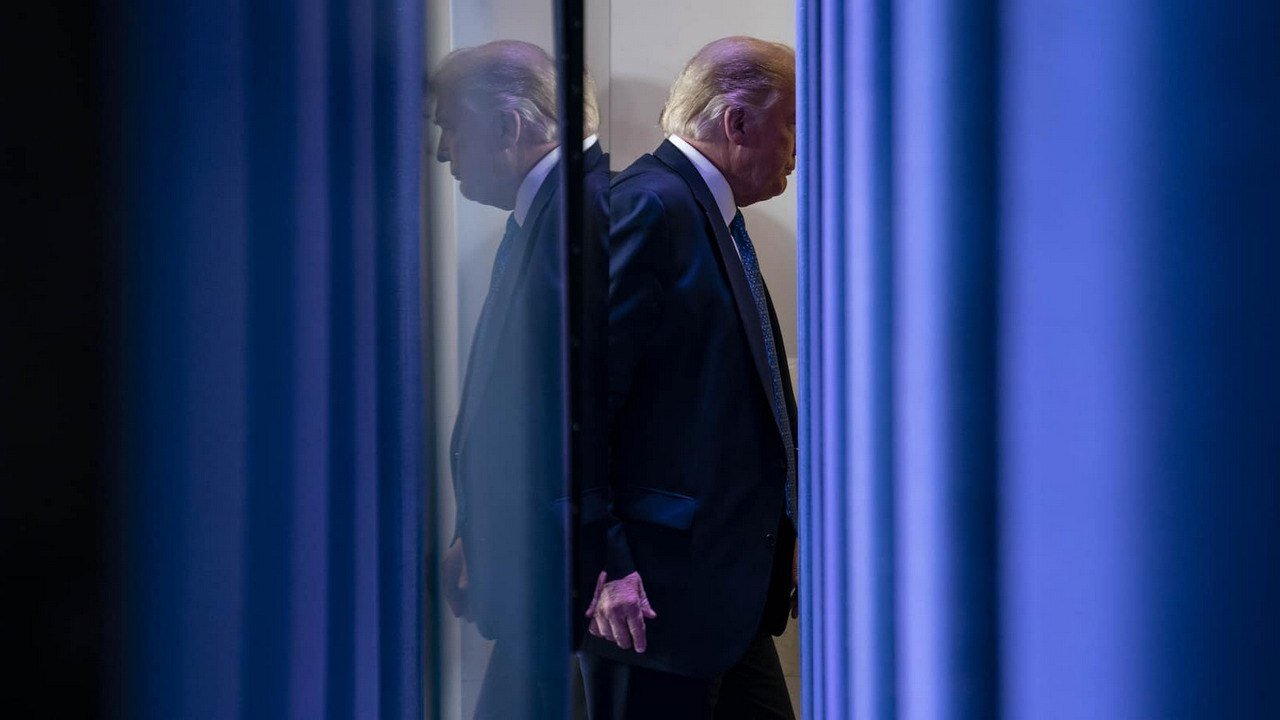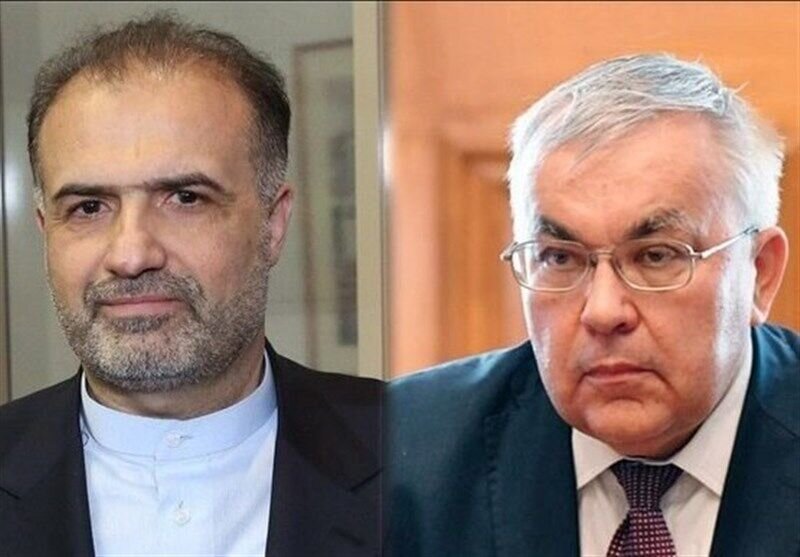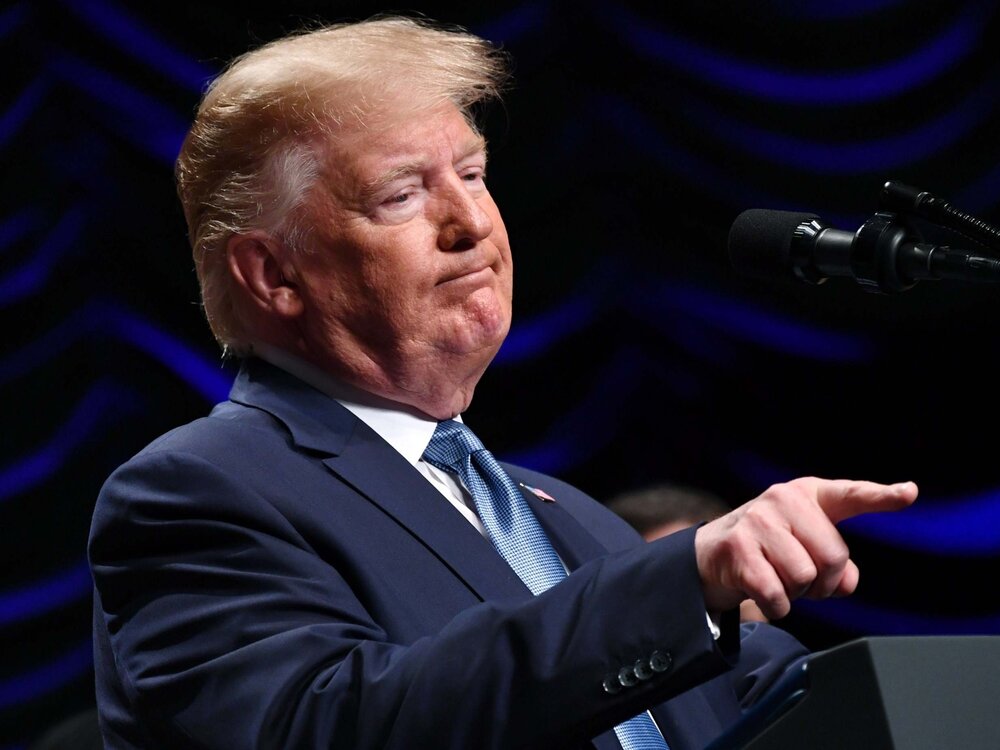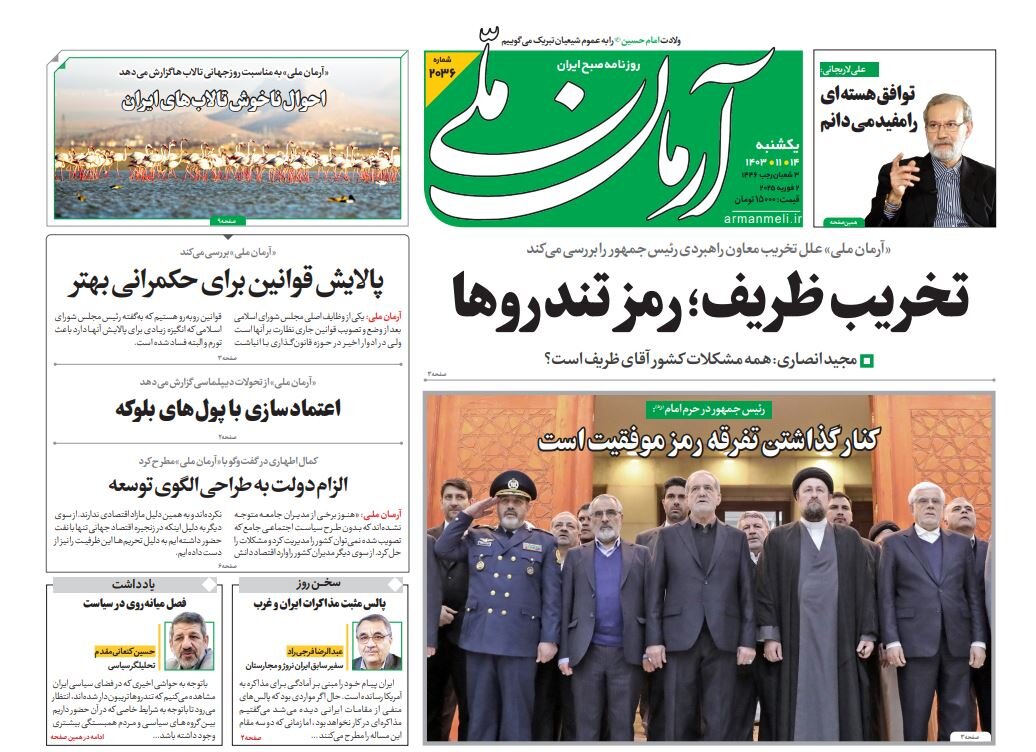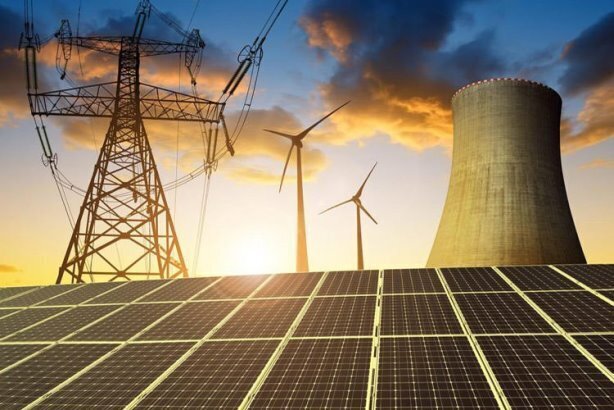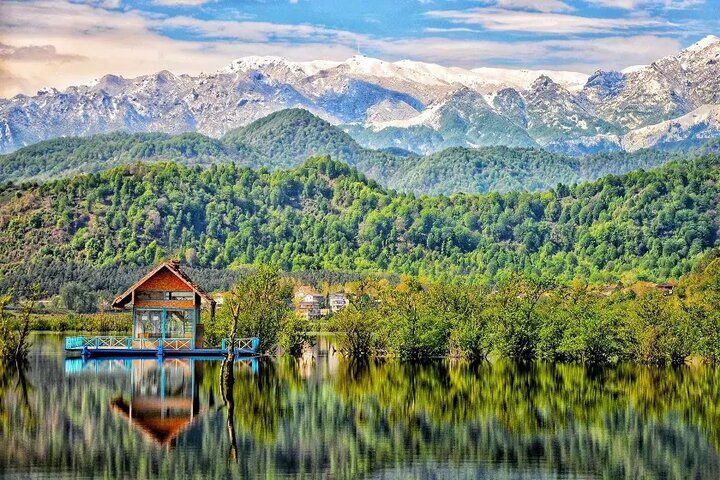
MADRID - The President of the United States, Donald Trump, revealed that he had discussed a potential plan with King Abdullah of Jordan to relocate more than one million Palestinians from the Gaza Strip to other countries in the region.
According to Trump, he plans to address this matter on Sunday with Egypts President, Abdel Fattah al-Sisi.During a conversation with reporters aboard Air Force One, Trump stated: I would like Egypt to take the people.
Were probably talking about 1.5 million people, and we just clear all of that out and say: You know what? Its over.The U.S.
President also praised Jordan for its history of hosting Palestinian refugees and said he urged King Abdullah to take in more displaced individuals.
I would love for you to take more because right now when I look at the entire Gaza Strip, its a disaster.
Its a real disaster, Trump remarked.The approximate figures involved in this "relocation"which, in practice, would amount to the ethnic cleansing of Gaza's populationcoincidentally align with the number of Palestinian refugees displaced during the Nakba of 1948, when Zionist settlers carried out the expulsion of a significant portion of the native Palestinian population.The Palestinian population, which has endured more than 15 months of genocide largely financed and supported by the United States, has responded with steadfast resistance and determination.
Despite the extreme hardships and widespread devastation in the Gaza Strip particularly in the north, where a significant portion of homes have been reduced to rubble Palestinians continue to express their unwavering desire to return to their homes.This aspiration to return and remain in their homeland constitutes a clear rejection of any plan that seeks to forcibly remove them.
The refusal to abandon Gaza and Palestine has become a symbol of resistance, reflecting a resolute opposition to proposals suggesting their relocation outside the region.The issue of land in the Palestinian context should not be understood solely from an essentialist perspective but through a broader political lens.
In this regard, the annihilation of Palestinian villages during the 1948 Nakba must be seen as a deliberate strategy aimed at erasing Palestinian presence from the collective memory and the physical landscape.The destruction of these villages, carried out down to the very last stone, was not limited to the physical elimination of homes but also sought to eradicate a historical Palestinian narrative that contradicted the legitimization of the creation of the regime of Israel.
The ruins of these villages would have told a story of Palestinian existence in the region prior to the founding of the Zionist regime.
This narrative,which inherently acknowledged the forced expulsion of the Palestinian population, was seen as an obstacle to legitimizing the new state.It is precisely this political backdrop that drives the systematic destruction of the ruins of Palestinian villages.
This action served a dual purpose: not only to erase the material evidence of Palestinian presence in the region but also to symbolically obliterate any historical connection that could challenge the new narrative of Israel.
The elimination of these remnants was part of a broader strategy aimed at redefining the political and cultural landscape of the region, erasing any trace of Palestinian life prior to the establishment of the Israeli state.In this context, ruins themselves represent a tragic reality: a remnant of destruction that bears witness to collective suffering and forced displacement.
However, the denial of the right to these ruins goes beyond immediate tragedy; it constitutes a profound rewriting of history.
By attempting to erase these ruins, not only is the material existence of displaced Palestinian communities denied, but a fundamental part of the region's history is targeted for erasure, ensuring that the official narrative takes precedence over Palestinian collective memory.Donald Trump's proposal to displace Palestinians from Gaza should be seen as a continuation of the systematic policies of Israeli apartheid.
These policies prioritize the expansion of illegal Jewish-only settlements on Palestinian land, consolidating a regime of oppression that not only strips Palestinians of their land but also violates their fundamental rights.
What is framed as a humanitarian solution, in reality, perpetuates a system of dispossession and segregation, cloaked in false compassion.It comes as no surprise that the first voices to support Trumps proposals came from Bezalel Smotrich and Itamar Ben Gvir, prominent figures in Israels ultranationalist coalition and ministers known for their far-right rhetoric.
These leaders have openly advocated for measures that facilitate the expansion of the Israeli regime at the expense of Palestinian rights.
Under the guise of humanitarian solutions, such proposals are, in fact, aimed at deepening a de facto occupation, denying Palestinians their right to self-determination and justice.As various experts, including Mouin Rabbani, have pointed out, Trumps plan perceives the very existence of Palestinians as an obstacle to peace.
In this context, their expulsion from Palestine is framed as the only viable solution to achieve this so-called peace.
This perspective, which places blame on the victimnamely, the Palestinian population, collectively subjected to prolonged genocidenot only distorts the reality of the conflict but also reinforces a narrative that portrays Palestinians as the main impediment to peace.
At the same time, it obscures the systematic policies of dispossession and violence that have shaped the current situation.This perspective seeks to divert attention from the systematic policies rooted in a racial and power-based distinction between Israelis, seen as human, and Palestinians, who are regarded as non-human.
Within this framework, the very existence of Palestinians as legitimate actors in the conflict is delegitimized, while dispossession and institutionalized violence against them are justified over decades.
By presenting forced displacement as a solution for peace, the roots of the conflict are ignored, favoring only the Israeli occupier while denying the rights and dignity of the Palestinian people.The relocation of Palestinianseffectively the ethnic cleansing proposed by Donald Trump and supported by Israelwill not come to pass.
Having failed to achieve its goal through genocide, the Palestinian people will not abandon their land or the political and cultural ties that bind them to their identity.
The resistance to expulsion and their steadfast attachment to their territory, enduring through decades of dispossession and displacement, reinforce the determination of the Palestinian population to remain on their land, regardless of attempts to impose solutions that strip them of their right to self-determination.

 7
7








